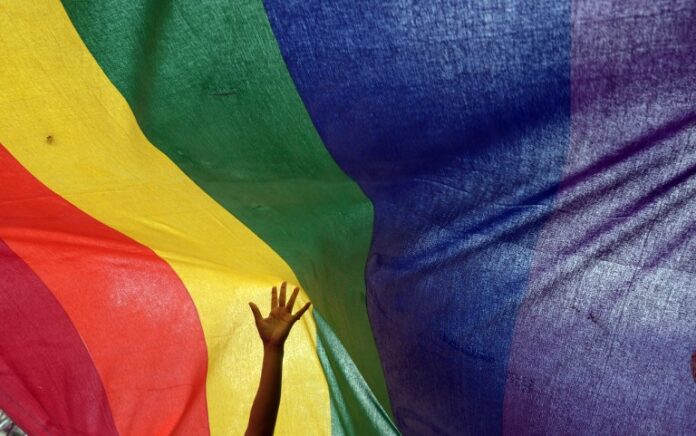An Indian sexual minority community member gestures over a rainbow flag while participating in a Rainbow Pride Walk in Kolkata on July 7, 2013. — AFP pic
KUALA LUMPUR, July 17 — Both cisgender women and transgender women in Malaysia have high hurdles in openly expressing themselves and the problems they face, according to a recent study by women’s rights group Empower Malaysia released today.
Titled Freedom of Expression and Gender-Based Violence, the study surveyed 60 cisgender woman from marginalised or minority communities and 60 transgender women.
The study defined a cisgender as a person whose gender identity matches the sex assigned at birth, while a transgender is the opposite.
Half of the cisgender women in the study said that they felt they had the freedom to express their issues freely.
Another 36.7 per cent said they had no freedom of expression, while 13.3 per cent said it depends on the situation.
Fifty per cent said they preferred to express themselves freely offline, while 21.7 per cent reported they favoured going online.
Five per cent noted they preferred both online and offline communication for expressing themselves freely, and 23.3 per cent said they preferred neither.
When asked about the levels of restriction they face when expressing themselves, 46.7 per cent of cisgender women said they were very restricted.
Other responses included, “moderately restricted” (18.3 per cent), “not restricted but with some challenges” (30 per cent), and not restricted at all (five per cent).
Empower’s also released its qualitative research that analysed multiple testimonies from transgender women (transwomen) which concluded that the group face “widespread restrictions” of freedom of expression because of their gender identity and gender expression.
This included restrictions by society, their family members, employers, religious institutions and other actors from their childhood.
All cisgender women in the study admitted they had faced some sort of sexual gender-based violence (SGBD) that had resulted in physical, sexual or mental harm.
However, only 15 per cent said they had reported their experience of SGBD to the police.
Although the number of cases that were resolved by the police was not declared, researcher Vinogiri Krishnan said that many of their respondents claimed the police did not appear to act on their domestic abuse complaints or even show sympathy.
“Reported my abuse many times to the police. Nothing much was done; they do not really interfere when it comes to family matters.
“I have even asked them, ‘Will you only take action if I turn up dead?’ and they jokingly replied to me ‘yes’,” reportedly said a respondent who was left anonymous.
The study on transwomen found that many common issues included a lack of support from the government for the group and the challenges they were vulnerable to, fear of incarceration and hostile work environments
Other challenges faced by transwomen were lack of access to appropriate healthcare, unsupportive family and partners and a hostile virtual environment.
The studies that began in 2019 were conducted by two organisations, Solving Lab Consultancy, and Justice for Sisters.
Their respondents were aged 18 to 60 and were from all states.
Respondents included those from marginalised and minority communities such as single mothers, religious minorities, Orang Asli, those with disabilities, low income groups, sex workers and drug users.


